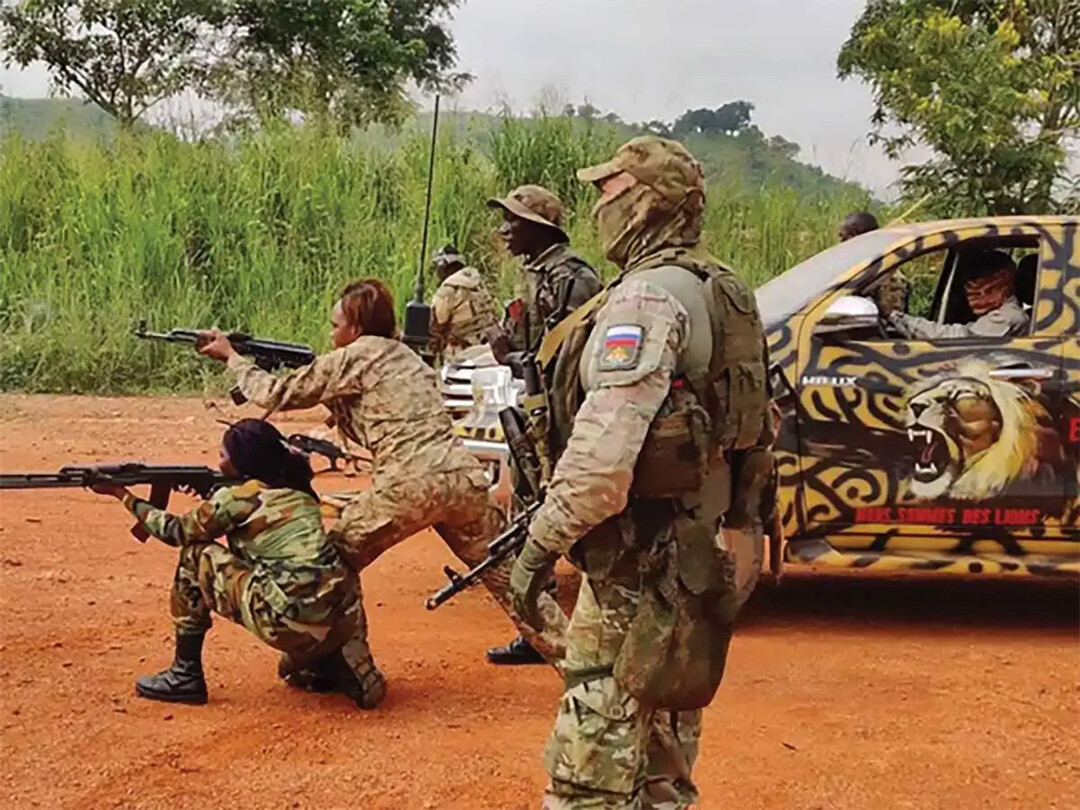
Bangui, Central African Republic – A recent United Nations report has unveiled a harrowing pattern of human rights violations in the Central African Republic (CAR), including summary executions, sexual violence, and torture, perpetrated by an armed group with ties to the national army. The report, compiled by the UN human rights office (OHCHR) and the UN peacekeeping mission in CAR, MINUSCA, details two waves of attacks in the Mbomou and Haut-Mbomou prefectures, occurring in October 2024 and January 2025, which have left at least 24 people dead and countless others traumatized.
The primary perpetrators identified are elements of Wagner Ti Azandé (WTA), an armed group with links to the Central African Armed Forces (FACA). WTA originated from Azandé Ani Kpi Gbé (Azanikpigbe), another armed group, with both implicated in the brutal attacks. The violence has been particularly directed against the Fulani pastoral community and other Muslim populations, as well as Sudanese refugees and asylum-seekers.
Atrocities Detailed:
In early October, WTA and Azanikpigbe fighters launched coordinated attacks on the towns of Dembia and Rafaï in the Mbomou prefecture. The report documents the public execution of a 36-year-old Fulani man in Dembia, a calculated act intended to instill terror within the community. Seven other Fulani men were bound and thrown alive into the Ouara River.
The attacks were marked by widespread sexual violence, with at least 24 victims, including 14 women and seven girls, subjected to rape. A separate attack on a Fulani camp near Mboki in Haut-Mbomou on January 21 resulted in the deaths of at least 12 people.
Decades of Instability and Humanitarian Crisis:
The CAR has endured decades of instability and communal violence, exacerbated by religious and ethnic tensions. The ongoing conflict has resulted in a severe humanitarian crisis, with UN assessments indicating that one in five people are displaced either internally or across the country's borders. Vital infrastructure, including schools and hospitals, has been severely damaged.
The recent civil war in Sudan and escalating tensions in southern Chad have further strained the already overwhelmed regions of CAR, leading to a significant influx of refugees, asylum-seekers, and returnees.
Call for Accountability and Justice:
Volker Türk, the UN High Commissioner for Human Rights, has emphasized the urgent need for accountability. "These horrible crimes must not go unpunished. Accountability is fundamental to ensuring such violations never happen again," Türk stated, calling for a thorough investigation into the ties between WTA and the national army. He demanded transparency regarding the group’s actions and legality, stating that if the group cannot be integrated into the national army in a legal way, it must be disarmed.
Following the attack near Mboki, at least 14 WTA members were arrested in Mboki and Bangui, representing a step towards justice. However, the report highlights the limited presence of state security forces in the affected regions, contributing to a pervasive climate of impunity.
Valentine Rugwabiza, the head of MINUSCA, expressed deep concern over the situation, warning that failure to address these crimes would undermine security gains and erode social cohesion.
UN and Government Response:
MINUSCA has intensified its efforts to protect civilians and support the restoration of state authority. The mission has deployed forces to Dembia, established a temporary operational base, and advocated for the reinforcement of FACA troops. MINUSCA has also facilitated dialogue and reconciliation efforts among communities.
The Central African Government has taken initial steps to address the violence, including the arrest of WTA members. The government has also announced plans to establish a Tribunal of Grande Instance in Zémio to provide access to justice for affected communities and combat impunity.
Ongoing Challenges:
Despite these efforts, significant challenges remain. The CAR's complex security landscape, coupled with regional instability, continues to pose a threat to peace and stability. The need for comprehensive security sector reform, robust humanitarian assistance, and sustained international support remains critical to addressing the root causes of the conflict and ensuring lasting peace and stability in the CAR.
[Copyright (c) Global Economic Times. All Rights Reserved.]




























